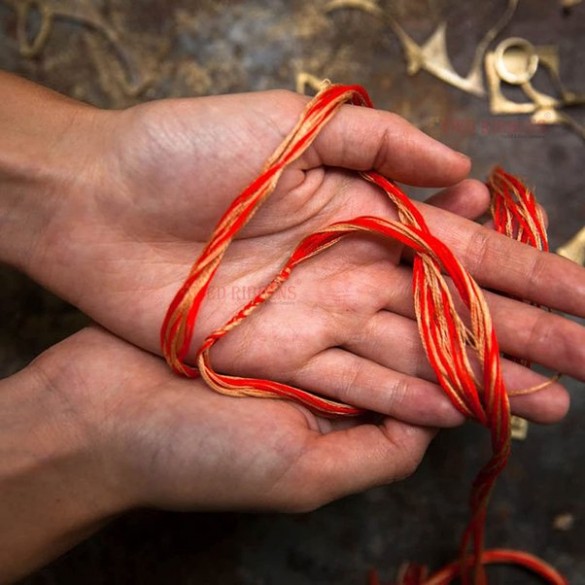
In Hindu culture, rituals and traditions hold immense significance, with each practice steeped in meaning and symbolism. One such tradition is the tying of Kalawa, also known as Mauli or Mouli, which is a sacred thread made of cotton or silk.
The Purpose of Tying Kalawa
Kalawa is believed to possess protective and auspicious properties. It is often tied around the wrist during religious ceremonies, festivals, or everyday life to ward off evil spirits and bring good luck and prosperity.
Rules and Customs Surrounding Kalawa
Choosing the Right Hand
Married women play a significant role in the tradition of tying Kalawa. According to customary beliefs, married women should tie Kalawa on their right hand. This practice symbolizes their commitment to their marital vows and their role as protectors of their family's well-being.
Unmarried Women and Kalawa
On the other hand, unmarried women traditionally tie Kalawa on their left hand. This symbolizes their readiness for marriage and their desire to find a suitable life partner.
Symbolism of Colors
Kalawa comes in various colors, each carrying its own symbolism:
Red: Red is the most common color for Kalawa and symbolizes power, energy, and fertility. It is often used during weddings and other auspicious occasions.
Yellow: Yellow signifies prosperity, happiness, and success. It is often used during festivals and celebrations.
Green: Green represents growth, harmony, and balance. It is associated with nature and is used to invoke blessings for health and well-being.
Tying the Knot
The process of tying Kalawa involves chanting prayers and invoking blessings from deities such as Lord Ganesha, Goddess Lakshmi, or Lord Hanuman, depending on the specific purpose or occasion.
Maintaining Kalawa
Once tied, Kalawa is meant to be worn continuously, only removed when it falls off naturally or when it becomes overly worn. It is considered inauspicious to remove Kalawa intentionally. Kalawa serves as a tangible reminder of one's faith and devotion in Hindu culture. Whether worn for protection, prosperity, or marital bliss, the act of tying Kalawa holds deep spiritual significance for millions around the world.
US-China Race for Drone Swarms Could Trigger Global Arms Buildup
MG Hector launched in India in a new avatar, know how much you will have to spend to bring it home
Tesla is preparing to enter India, selling these vehicles across the world